For a Good Time Managing Your Money, Call on These Apps
Budgeting, saving and getting out of debt aren’t normally associated with fun, but these eight apps aim to make personal finance less of a grind for you.


Profit and prosper with the best of Kiplinger's advice on investing, taxes, retirement, personal finance and much more. Delivered daily. Enter your email in the box and click Sign Me Up.
You are now subscribed
Your newsletter sign-up was successful
Want to add more newsletters?

Delivered daily
Kiplinger Today
Profit and prosper with the best of Kiplinger's advice on investing, taxes, retirement, personal finance and much more delivered daily. Smart money moves start here.

Sent five days a week
Kiplinger A Step Ahead
Get practical help to make better financial decisions in your everyday life, from spending to savings on top deals.

Delivered daily
Kiplinger Closing Bell
Get today's biggest financial and investing headlines delivered to your inbox every day the U.S. stock market is open.

Sent twice a week
Kiplinger Adviser Intel
Financial pros across the country share best practices and fresh tactics to preserve and grow your wealth.

Delivered weekly
Kiplinger Tax Tips
Trim your federal and state tax bills with practical tax-planning and tax-cutting strategies.

Sent twice a week
Kiplinger Retirement Tips
Your twice-a-week guide to planning and enjoying a financially secure and richly rewarding retirement

Sent bimonthly.
Kiplinger Adviser Angle
Insights for advisers, wealth managers and other financial professionals.

Sent twice a week
Kiplinger Investing Weekly
Your twice-a-week roundup of promising stocks, funds, companies and industries you should consider, ones you should avoid, and why.

Sent weekly for six weeks
Kiplinger Invest for Retirement
Your step-by-step six-part series on how to invest for retirement, from devising a successful strategy to exactly which investments to choose.
Can there be anything fun about budgeting and money management? Well, for many people, the answer is no. Personal finance and money management is all about discipline — preventing yourself from spending anyhow you like for the sake of your future. In essence, you embrace present pain for the sake of your future pleasure.
But what if budgeting and money management could also be fun? That’s exactly what some innovative personal finance apps are trying to do. Either through gamification, visualization, rewards and penalties and/or saving while spending, you can have fun while managing your money and preparing for a better future.
Here are eight examples of personal finance apps doing just that.

Luci
Luci (Let’s Use Compound Interest) is a gamified personal finance app that allows you to have fun (through its space travel game) while achieving important personal finance goals.
Achievement of real-life personal finance goals (like savings and investment goals or paying your credit card bills) will unlock new levels and more exciting features and rewards that make the gaming experience more interesting.
Also, users can take personal finance courses and unlock rewards and new features by answering various personal finance questions.
Furthermore, Luci has exciting charts that will help you better understand your personal finance journey.
Early access for Luci has just been launched, and the app promises to be a good opportunity for those willing to enjoy their personal finance adventure.
Luci is 100% free to users. Luci earns money from users who watch optional video ads to support the team.

Cleo
Cleo describes itself as the “world's first AI assistant dedicated to personal finance.”
Users of Cleo can have fun chatting with an AI assistant through the roast mode or hype mode.
For example, if you ask Cleo’s AI assistant to roast you, you might get a message that highlights the fact that you made 12 trips to McDonald’s this month. Cleo might say something like, “Any more, and I’ll start listing it as a bill.”
With the hype mode, you could receive a message that highlights how you’ve been spending less on travel this week along with the note, “You little introverted legend.”
Cleo also allows you to fine yourself for spending on what you want to avoid (Swear Jar), round up purchases and set savings goals.
Recently, Cleo has also included offering cash advances as a way for users to build their credit or to avoid overdrawing their bank account during an emergency.
Cleo offers a free basic version. Cleo Plus is $5.99 per month.
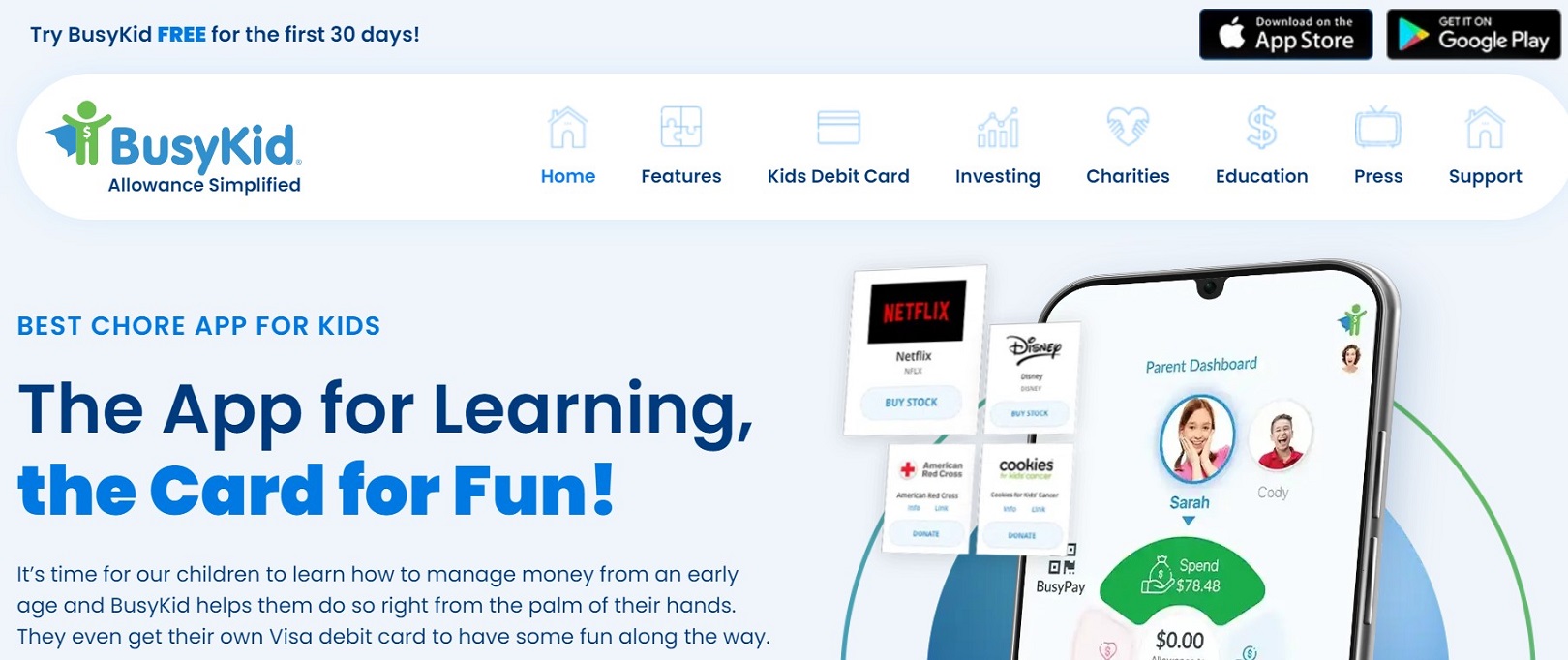
BusyKid
The earlier one starts taking control of their finances, the more wealth one can build and the faster it is to reach financial independence. This is why it’s important to start teaching kids personal finance as soon as possible. BusyKid is a personal finance app trying to do exactly this in a fun way.
BusyKid allows you to set up chores for your kids and reward them as they complete them. Other family members can also send money to the kids through their QR codes.
To get kids started on the importance of saving money, the app will automatically save a portion of their accumulated allowances every week. There is also the option to donate to charity and invest in U.S. stocks.
It even allows up to five debit cards for each account, meaning you can use one account for up to five kids.
The whole point is for kids to develop sound personal finance skills and have fun while at it.
BusyKid is free for 30 days, after which you will pay $4 per month (billed annually).
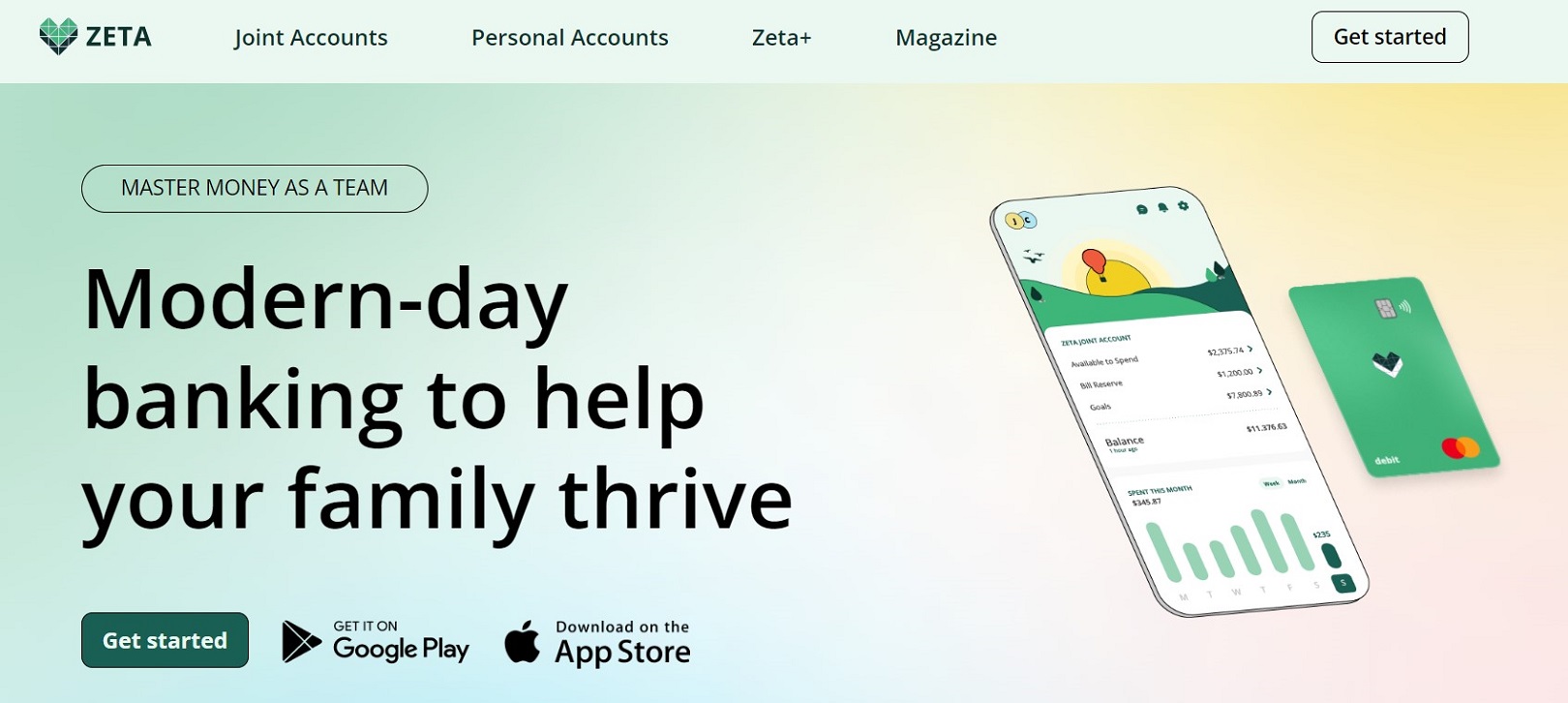
Zeta
Zeta is a budgeting app built specifically for the family. Family members can create combined budgets and track their spending together, or they can keep their finances separate while using the same app.
Zeta also allows communication among family members. And to make it more fun, family members can create money dates (where they can better communicate about their finances), take quizzes to discover the money personality of others and access resources that will make joint money management easier.
Zeta is free.
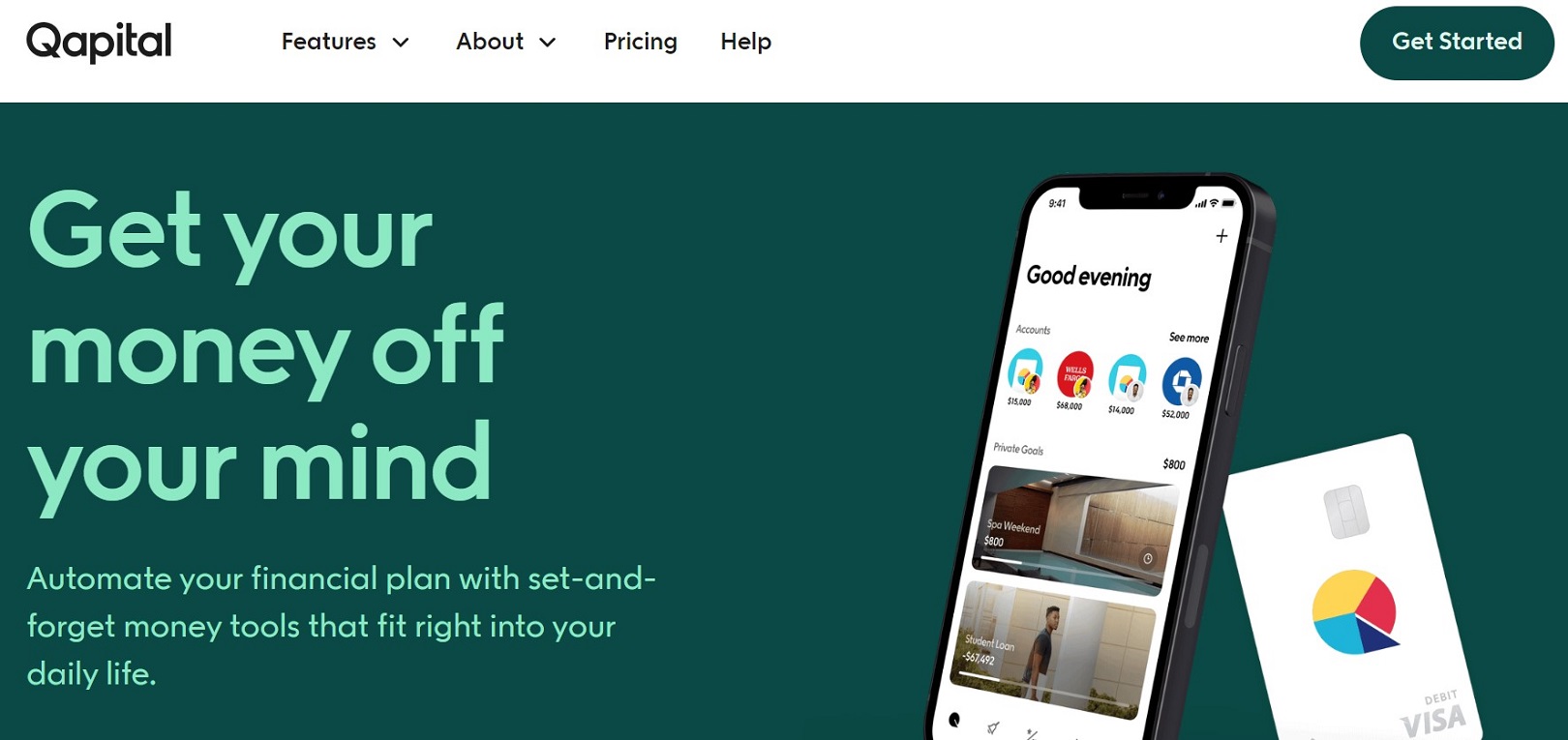
Qapital
Qapital is a budgeting app that prioritizes a hands-off approach to budgeting and investing. You can automate savings, set savings goals and then watch your savings accumulate.
The fun part of Qapital is that you can create savings goals with your partner, and both of you can automate your savings to achieve the joint goal.
Qapital also allows you to save by rounding up purchases so that you can save while spending. The visualization is also elite, as you can use a digital vision board to see how close or far you are from achieving your goals.
The app is free for 30 days after which it costs $3 per month.

Acorns
The rounding up of purchases, which has become mainstream among personal finance apps, was popularized by Acorns.
Though saving while spending is fun, it is even more interesting when you see those little drops turn into a bucket. Acorns helps you do this by passively investing your savings in a diversified portfolio of ETFs. With compound interest, you might be surprised how much $1 here and $10 there can add up to.
You can also choose portfolios based on your investment goals, time horizon and risk appetite. Whoever you are, there is a portfolio that will fit you and help you achieve your goals.
Acorns also provides personal finance lessons, and you can get bonus investments when you shop with any of the brands in partnership with them.
There are three monthly subscription plans you can choose from: $3, $5 and $7.
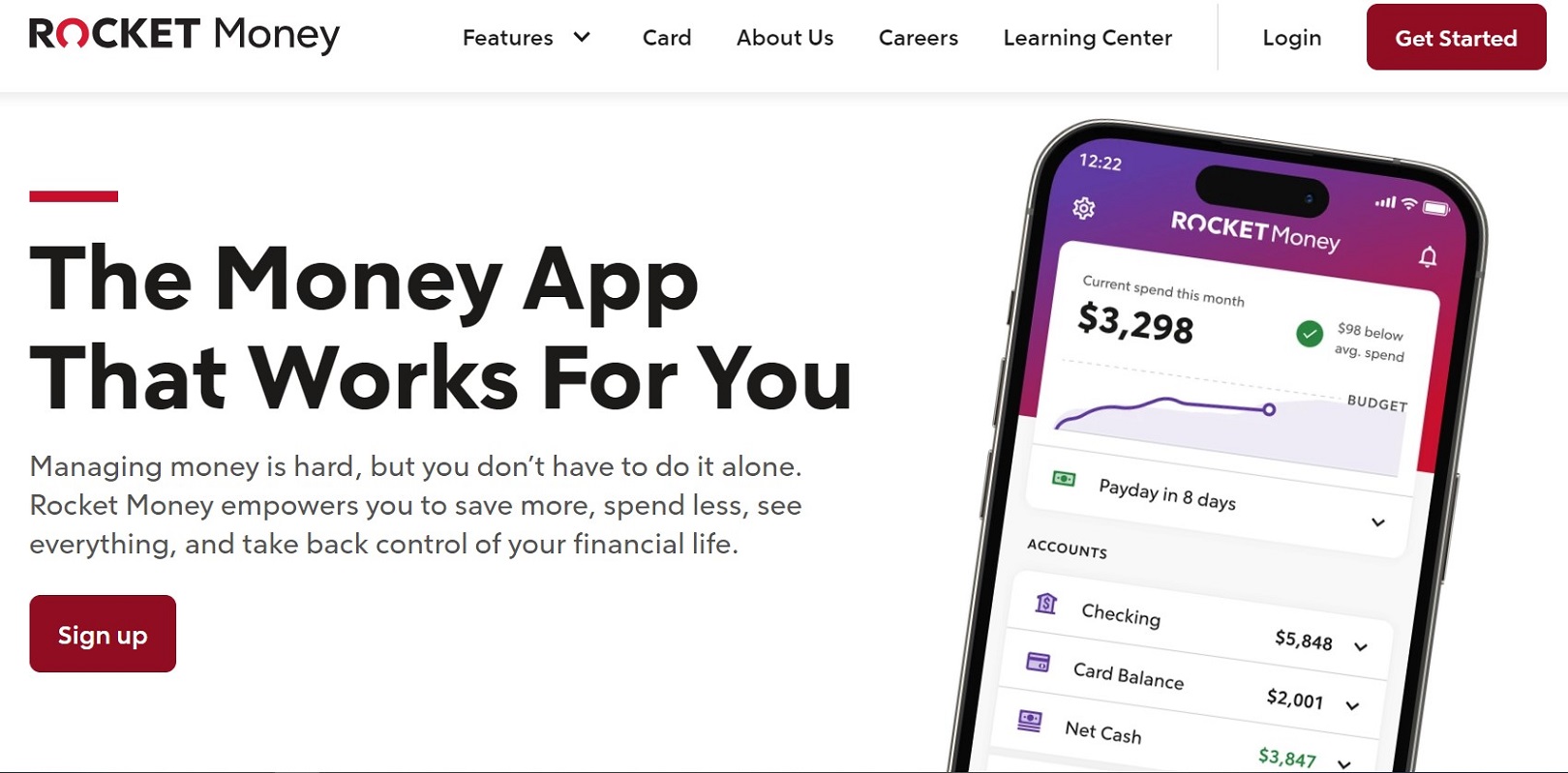
Rocket Money
Rocket Money helps you manage your finances by keeping track of all of your subscriptions. It notifies you of upcoming bills and allows you to cancel unwanted subscriptions. Monthly subscriptions can add up — canceling ones you don't use often can save a significant amount in a year.
Premium users also have access to a bill negotiation service where Rocket Money employees can help you negotiate lower bills with providers. What you pay for the premium service will depend on how much they can help you save with the service.
These two interesting features make Rocket Money unique and interesting.
There is a free version, and premium versions range from $4 to $12 per month.
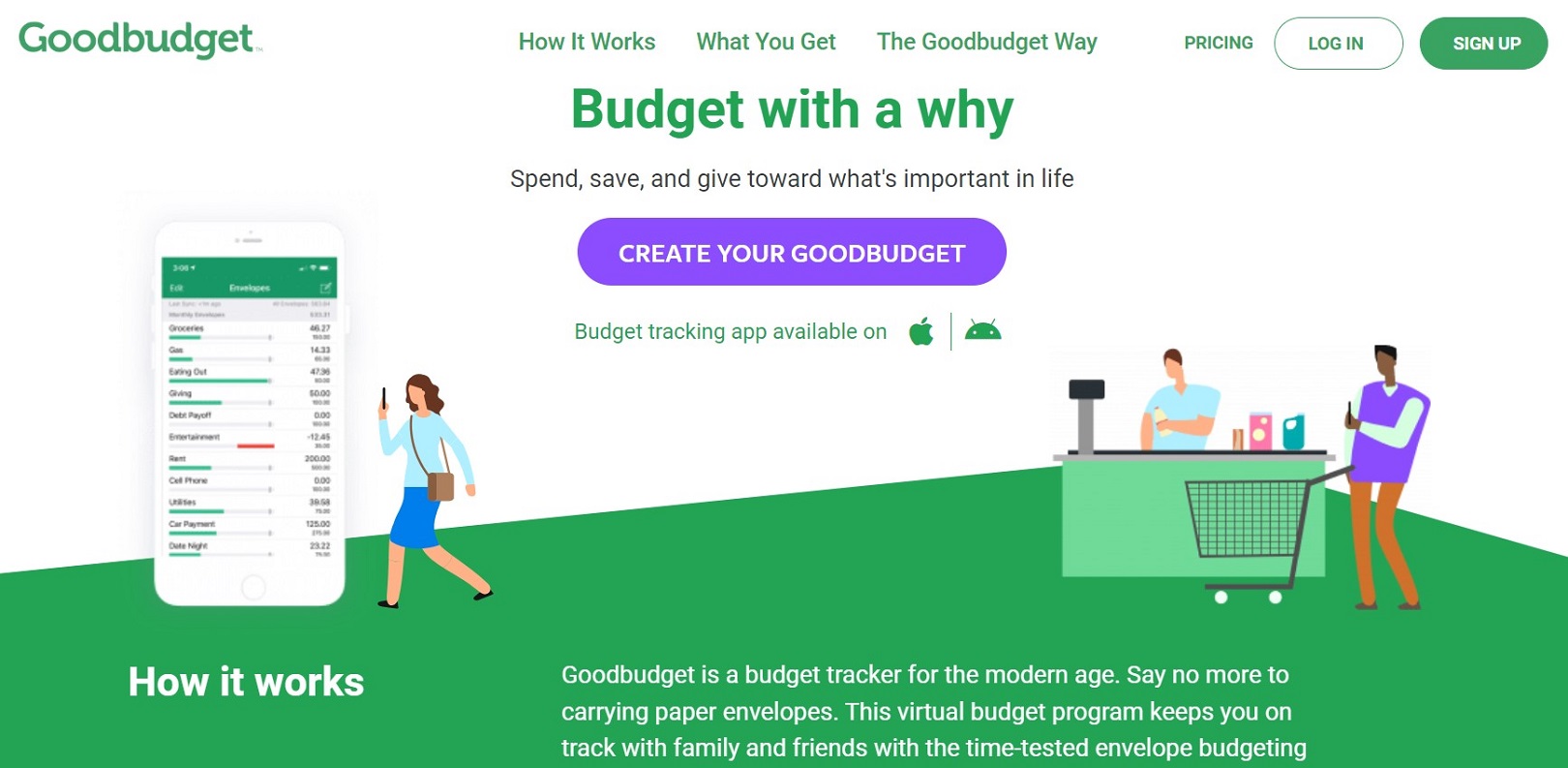
Goodbudget
Goodbudget makes the budgeting process fun by allowing family members to share budgets with one another. This makes it easy to create and manage household budgets.
Educational courses and podcasts are also available on the platform, which makes it easier for users to learn and do at the same time.
With the debt-tracking feature, users can also create plans to tackle their debts and then monitor their progress.
Goodbudget costs $8 per month or $70 per year.
What about security?
It is normal that users are concerned about apps that require access to their data. The apps we have reviewed above collect user data to improve their service offerings and make the budgeting process fun. The reviewed apps each have bank-level 256-bit encryption to protect users' money and data. Also, they provide FDIC coverage through partner financial intermediaries, further guaranteeing the safety of consumers.
If you still have safety concerns, though, you can speak to the customer service agents of the company to get further guarantees.
Conclusion
Yes, you need discipline to better manage your finances and save toward your goals. But with these apps, you can make the process more interesting and enjoyable.
RELATED CONTENT
Six of the Best Budgeting Apps
Your Favorite Payment Apps May Face Federal Scrutiny
Food Delivery Apps: We Compare 4 of the Biggest
7 Ways to Automate Your Finances and Supercharge Your Savings
This article was written by and presents the views of our contributing adviser, not the Kiplinger editorial staff. You can check adviser records with the SEC or with FINRA.
Profit and prosper with the best of Kiplinger's advice on investing, taxes, retirement, personal finance and much more. Delivered daily. Enter your email in the box and click Sign Me Up.

Marguerita M. Cheng is the Chief Executive Officer at Blue Ocean Global Wealth. She is a CFP® professional, a Chartered Retirement Planning Counselor℠ and a Retirement Income Certified Professional. She helps educate the public, policymakers and media about the benefits of competent, ethical financial planning.
-
 How Much It Costs to Host a Super Bowl Party in 2026
How Much It Costs to Host a Super Bowl Party in 2026Hosting a Super Bowl party in 2026 could cost you. Here's a breakdown of food, drink and entertainment costs — plus ways to save.
-
 3 Reasons to Use a 5-Year CD As You Approach Retirement
3 Reasons to Use a 5-Year CD As You Approach RetirementA five-year CD can help you reach other milestones as you approach retirement.
-
 Your Adult Kids Are Doing Fine. Is It Time To Spend Some of Their Inheritance?
Your Adult Kids Are Doing Fine. Is It Time To Spend Some of Their Inheritance?If your kids are successful, do they need an inheritance? Ask yourself these four questions before passing down another dollar.
-
 The 4 Estate Planning Documents Every High-Net-Worth Family Needs (Not Just a Will)
The 4 Estate Planning Documents Every High-Net-Worth Family Needs (Not Just a Will)The key to successful estate planning for HNW families isn't just drafting these four documents, but ensuring they're current and immediately accessible.
-
 Love and Legacy: What Couples Rarely Talk About (But Should)
Love and Legacy: What Couples Rarely Talk About (But Should)Couples who talk openly about finances, including estate planning, are more likely to head into retirement joyfully. How can you get the conversation going?
-
 How to Get the Fair Value for Your Shares When You Are in the Minority Vote on a Sale of Substantially All Corporate Assets
How to Get the Fair Value for Your Shares When You Are in the Minority Vote on a Sale of Substantially All Corporate AssetsWhen a sale of substantially all corporate assets is approved by majority vote, shareholders on the losing side of the vote should understand their rights.
-
 How to Add a Pet Trust to Your Estate Plan: Don't Leave Your Best Friend to Chance
How to Add a Pet Trust to Your Estate Plan: Don't Leave Your Best Friend to ChanceAdding a pet trust to your estate plan can ensure your pets are properly looked after when you're no longer able to care for them. This is how to go about it.
-
 Want to Avoid Leaving Chaos in Your Wake? Don't Leave Behind an Outdated Estate Plan
Want to Avoid Leaving Chaos in Your Wake? Don't Leave Behind an Outdated Estate PlanAn outdated or incomplete estate plan could cause confusion for those handling your affairs at a difficult time. This guide highlights what to update and when.
-
 I'm a Financial Adviser: This Is Why I Became an Advocate for Fee-Only Financial Advice
I'm a Financial Adviser: This Is Why I Became an Advocate for Fee-Only Financial AdviceCan financial advisers who earn commissions on product sales give clients the best advice? For one professional, changing track was the clear choice.
-
 I Met With 100-Plus Advisers to Develop This Road Map for Adopting AI
I Met With 100-Plus Advisers to Develop This Road Map for Adopting AIFor financial advisers eager to embrace AI but unsure where to start, this road map will help you integrate the right tools and safeguards into your work.
-
 The Referral Revolution: How to Grow Your Business With Trust
The Referral Revolution: How to Grow Your Business With TrustYou can attract ideal clients by focusing on value and leveraging your current relationships to create a referral-based practice.
